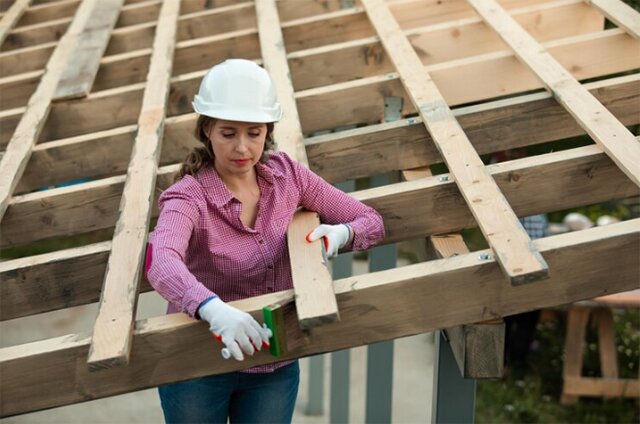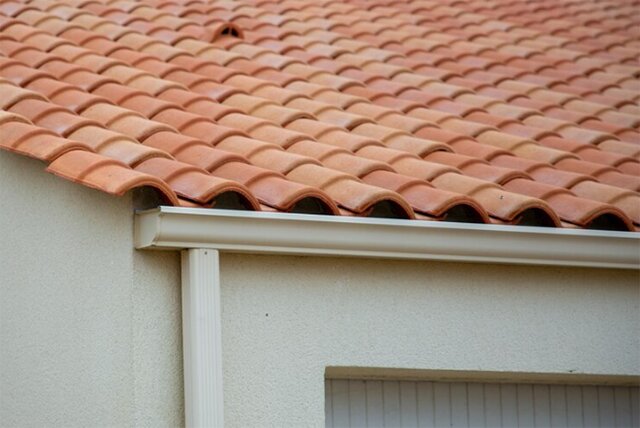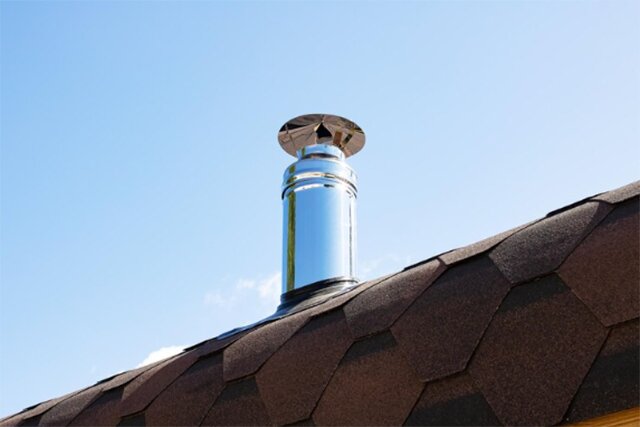Welcome! If you’re reading this, chances are you’re in the market for a new roof. Replacing your roof can be an expensive and daunting task, but it doesn’t have to be. In this article, we will discuss what factors affect the cost of a roof replacement and how to find the sweet spot between quality and affordability. We’ll also provide tips on how to spot good value when comparing quotes from different contractors. With this information, you should have the confidence to make an informed decision about your next roofing project.
Disclaimer: Replacing a roof is no small task and can have a huge financial impact on your home. It is important to do adequate research and get several quotes before hiring a contractor to do the job. While the information provided in this article should give you an idea of what to look for when selecting a contractor, we recommend consulting with professionals in your area for advice specific to your needs. Advance Roofing LLC has been a proud service provider in Spokane, WA, known for its superior quality roofing solutions that are built to last for years.
Definition of a Roof Replacement

A roof replacement involves completely removing the existing roof system and replacing it with a new one. This is needed when the current roof has sustained significant damage or has exceeded its lifespan. A roof replacement can vary in cost depending on various factors such as roof size, type of material used, roof structure, and additional costs such as building permits and building codes. In this article, we will delve into what a roof replacement is and the sweet spot of what it should cost to ensure that homeowners have an idea of what to expect when planning for a roofing project.
Average Prices for Different Roofing Materials
When it comes to roof replacements, one of the first questions on many homeowners’ minds is, “What should a roof replacement cost?” The answer to that question will depend on several factors, including the size of your home or building, the type of roof, and your location.
One of the biggest factors influencing cost is the type of roofing material that you choose. Some of the most common types of roofing materials used in the United States include asphalt shingles, metal roofs, wood shingles, clay tiles, and slate tiles.
- Asphalt shingles are the most popular roofing material in the US. They are relatively inexpensive, easy to install, and come in a variety of colors and styles. On average, the cost of asphalt shingles ranges from $80 to $100 per square (a square is equal to 100 square feet) installed.
- Metal roofs have become increasingly popular in recent years due to their durability and energy efficiency. The cost of a metal roof will vary depending on the type of metal used, but on average, it ranges from $120 to $900 per square installed.
- Wood shingles are another popular option for homeowners who want a more natural look. They can be more expensive than asphalt shingles, with an average price range of $350 to $500 per square installed.
- For those who want a more exotic or unique look, clay tiles are a great option. They are known for their durability, resistance to fire and wind, and their ability to keep your home cooler in warm weather. However, with that durability and unique look comes a higher price tag. On average, the cost of clay tiles ranges from $700 to $1000 per square installed.
- Finally, slate tiles are another type of roofing material that can be quite expensive due to their durability and longevity. On average, the cost of slate tiles ranges from $900 to $1500 per square installed.
It’s important to note that these are all average price ranges and that the cost of your specific roofing project may fall above or below these numbers depending on several factors. When choosing a roofing material, it’s important to consider your budget, personal preferences, and the overall style of your home or building.
Factors That Can Affect the Overall Price Range

The cost of a new roof can vary greatly depending on several factors. It’s important to consider these factors in order to find the sweet spot of the price range for a roof replacement that fits your budget while also ensuring the quality and longevity of your new roof. In this article, we will explore the various factors that can affect the overall price range of a roof replacement project.
Size of the Home or Building
When it comes to roof replacement costs, the size of the home or building is a crucial factor that can greatly influence the total expense of the roofing project. In general, larger roofs will require more materials and labor, resulting in higher installation costs. This is because bigger roofs have a larger surface area that needs to be covered and may require more complex designs, such as multiple peaks or intricate shapes.
However, it’s important to note that the size of the roof doesn’t always directly correlate to the cost of replacement. For example, a small home with a complex roof design may actually cost more to replace than a larger, simpler roof due to the calculation of roof square footage. Roofing contractors typically charge per square footage of the roof, which can differ based on how the roof is designed.
Can you provide information on the cost of roof replacement based on the size of the roof? According to industry standards and data, the cost can range from $1,200 to $15,000 or more, depending on the number of squares needed for the job. One square is equivalent to 100 square feet of roof surface area, and roofing contractors typically charge per square.
For homes that are 12-15 squares, the average cost for roof replacement is around $1,200 to $4,500. For homes that are 16-20 squares, the cost can range from $5,000 to $7,500. And for larger homes that are 21-35 squares, the cost for roof replacement can go up to $15,000 or more.
It’s important to work with a professional roofing contractor who can provide an accurate estimate based on the unique features of the roof and personal preferences of the homeowner or building owner.
Professional Labor Costs and Fees

When it comes to a roof replacement project, labor costs and fees can have a significant impact on the overall price range. The professional labor costs of roofing contractors can vary widely depending on a number of factors.
One major factor that can affect labor costs is the complexity of the job. A more complex roof replacement project, such as one involving a roof with a steep pitch, multiple levels, or a unique roof structure, may require more labor and therefore be more expensive. On the other hand, a more straightforward and simple roof replacement project may require less labor and be more cost-effective.
Another factor that can impact labor costs is the availability of roofing professionals in your area. In situations where there is a shortage of roofing professionals despite high demand for their services, it is common for contractors to charge a premium for their labor, resulting in higher costs for consumers.
The level of experience of the contractor can also affect labor costs. More experienced contractors may charge higher fees due to their expertise, but they may also be able to complete the job more efficiently and with fewer mistakes, leading to lower total costs in the long run.
In terms of how contractors charge for labor costs, it can vary from a flat hourly rate to a percentage of the total cost of the project. It is important to ask for a detailed breakdown of labor costs and fees from potential contractors, so that you can fully understand what you are paying for and how the costs are allocated.
Building Permits and Building Codes
When it comes to undertaking a roofing project, the importance of building permits cannot be overstated. Building permits are a legal requirement to ensure that any construction work meets the local safety and building standards. Failure to obtain proper permits can result in fines, legal consequences and additional expenses. Therefore, it’s essential to understand the permitting requirements that impact the cost of your roofing project.
A roofing project requires permits that vary from state to state, depending on size, location, and scope of work. In most cases, the building permit is necessary for any roof replacement or installation that involves structural changes to the roof. Permits are also required for replacing an entire roof, adding a new layer of shingles, or installing a new roof type, such as metal or clay tiles.
One of the main considerations for building permits is ensuring that the roofing contractor you choose is licensed and qualified to work within the area’s building codes. Roofing professionals are familiar with the permit process and can help you obtain the necessary permits. However, make sure to choose a licensed contractor with experience in dealing with building permits.
Building codes also play a crucial role in ensuring that your roofing project meets safety and installation standards. These codes are minimum requirements that are set to protect homeowners, occupants, and property while ensuring the roof’s longevity. Any roofing project that does not meet the set standards is subject to compliance violations and fines.
Additional Costs for Specialty Items or Materials

When it comes to replacing a roof, there are many factors that can impact the overall cost of the project. Beyond the basic materials and installation, there are a number of specialty items or materials that can contribute to additional roofing costs. Homeowners should be aware of these items before finalizing their budget to avoid any surprises.
- One common specialty item that can add to the cost of a roof replacement is gutters. While gutters are not part of the roof itself, they are an important component of the overall roofing system. If your existing gutters are damaged or outdated, it may be necessary to replace them along with the roof. This can increase the total cost of the project.
- Skylights are another specialty item that can drive up the cost of a roof replacement. While they add natural light to the interior of a home, they also require additional labor and materials to install. Homeowners should consider their personal preferences before deciding whether or not to include skylights in their roofing project.
- Chimneys can also add to the overall cost of a roof replacement. If your chimney needs repairs or modifications, it will likely require the expertise of a professional roofing contractor. This can add to the cost of the project, so it’s important to factor in any potential chimney-related expenses ahead of time.
- Lastly, proper ventilation is an important part of any roofing system. Without adequate ventilation, a roof can suffer from a range of issues, including moisture buildup and heat damage. If your existing ventilation system needs to be updated or modified, it can add to the overall cost of the project.
To get a better understanding of the potential cost of a roof replacement, homeowners should consult with roofing professionals and get a detailed estimate for the entire project. This estimate should include each of the specialty items discussed, as well as any other potential costs associated with your specific roof type, size, and structure. By doing so, you can ensure that you are fully prepared for the costs associated with your roofing project and avoid any unpleasant surprises down the road.
Professional Tips to Help You Find the Best Price Range for Your Project

Finding the right price range is crucial when it comes to any home improvement project, and roof replacement is no exception. You don’t want to shell out too much money, nor do you want to cut corners and end up with subpar results. To help you find the sweet spot for your roof replacement costs, we’ve compiled a list of professional tips that can streamline your budget and ensure that you end up with a sturdy and aesthetically pleasing roof. Read on to discover the secrets to affordable and high-quality roof replacement.
Research Reputable Roofing Contractors in Your Area
When it comes to undertaking a roof replacement project, one of the most critical decisions you’ll make is choosing a roofing contractor. Hiring a skilled and trustworthy contractor is crucial to ensure that the job is done correctly and to avoid potential issues down the line. Therefore, researching reputable roofing contractors in your area is critical.
There are several methods for identifying and comparing roofing contractors. Word of mouth is one of the best ways to find a reliable contractor. Ask friends, family, and colleagues for their recommendations. Additionally, you could check online reviews and neighborhood boards to see what others are saying about local roofing contractors. Your real estate agent can be an excellent resource as well since they may have worked with other contractors in the past.
Another way to find reputable roofing contractors is by consulting local trade organizations. The National Roofing Contractors Association is a great resource for finding licensed and reputable contractors in your area. By taking these extra steps, you can ensure you’re choosing from a pool of skilled professionals.
When researching roofing contractors, make sure to verify their licensure and insurance coverage. Licensure ensures that the contractor has met specific standards and requirements and is authorized to perform the work required. Insurance coverage protects both the contractor and you in case of any accidents or damage during the project.
Experience is another crucial factor to consider when choosing a roofing contractor. Look for a contractor with several years of experience working in your area. This demonstrates their knowledge of local building codes and regulations and their ability to handle the unique challenges that come with roofing in your area.
Finally, ensure that the contractor you choose offers warranties for their work. This can provide peace of mind and protect you from future issues related to the installation or materials used for your roof replacement.
Request Estimates from Multiple Sources Before Making a Final Decision
When it comes to roof replacement costs, finding the sweet spot can be tricky. However, one way to ensure you’re getting the best value for your money is by requesting estimates from multiple sources.
When you’re ready to embark on your roof replacement project, start by reaching out to reputable roofing contractors in your area. A simple Google search or asking for recommendations from friends and family can help you compile a list of potential contractors.
Once you have a list of potential contractors, reach out to them and request detailed estimates that outline all costs related to the project. This includes labor costs, materials, building permits, insurance policy, and any additional costs or fees that may not be included in the initial quote.
It’s important to note that the cheapest estimate may not always be the best option. Be sure to carefully review each estimate and ask questions about any additional costs or fees that may not be included in the initial quote. For example, if a contractor is offering a significantly lower price but does not include the cost of building permits, this could end up costing you more in the long run.
By requesting estimates from multiple sources, you’ll be able to compare prices and determine the best value for your money. This will help you make an informed decision and ensure that the entire project stays within your budget.
Ask Questions About Warranties and Insurance Coverage

When tackling a roofing replacement project, it’s crucial to prioritize the longevity and durability of your investment. To ensure you’re fully protected, make sure to ask your roofing contractor about warranties and insurance coverage.
Warranties are an essential factor to consider when replacing your roof. Be sure to ask your contractor about the length of the warranty and what it covers. Many roofing materials come with a warranty from the manufacturer, covering defects in the materials themselves. A good roofing contractor should also offer a warranty on their installation work. It’s essential to understand any conditions that could void these warranties, so you understand what is and isn’t covered.
Insurance coverage is another critical factor to consider. Reputable roofing contractors should have liability insurance in case of any accidents that may happen during the project. Be sure to ask your contractor about their insurance coverage and request a copy of their policy. It’s also a good idea to check with your homeowner’s insurance company to see if they have any specific requirements for the contractors you work with.
By asking questions about warranties and insurance coverage, you can protect your investment and ensure that you’re working with a qualified, reliable roofing contractor. Don’t hesitate to prioritize these factors when selecting a contractor for your roofing replacement project.
Conclusion
Replacing your roof can be a costly endeavor, but it doesn’t have to be. By understanding the factors that affect the cost of a roof replacement and taking time to compare quotes from different contractors, you can find the sweet spot between quality and affordability. With this knowledge in hand, you’ll be able to make an informed decision about your next roofing project with confidence.



 509-201-4190
509-201-4190
